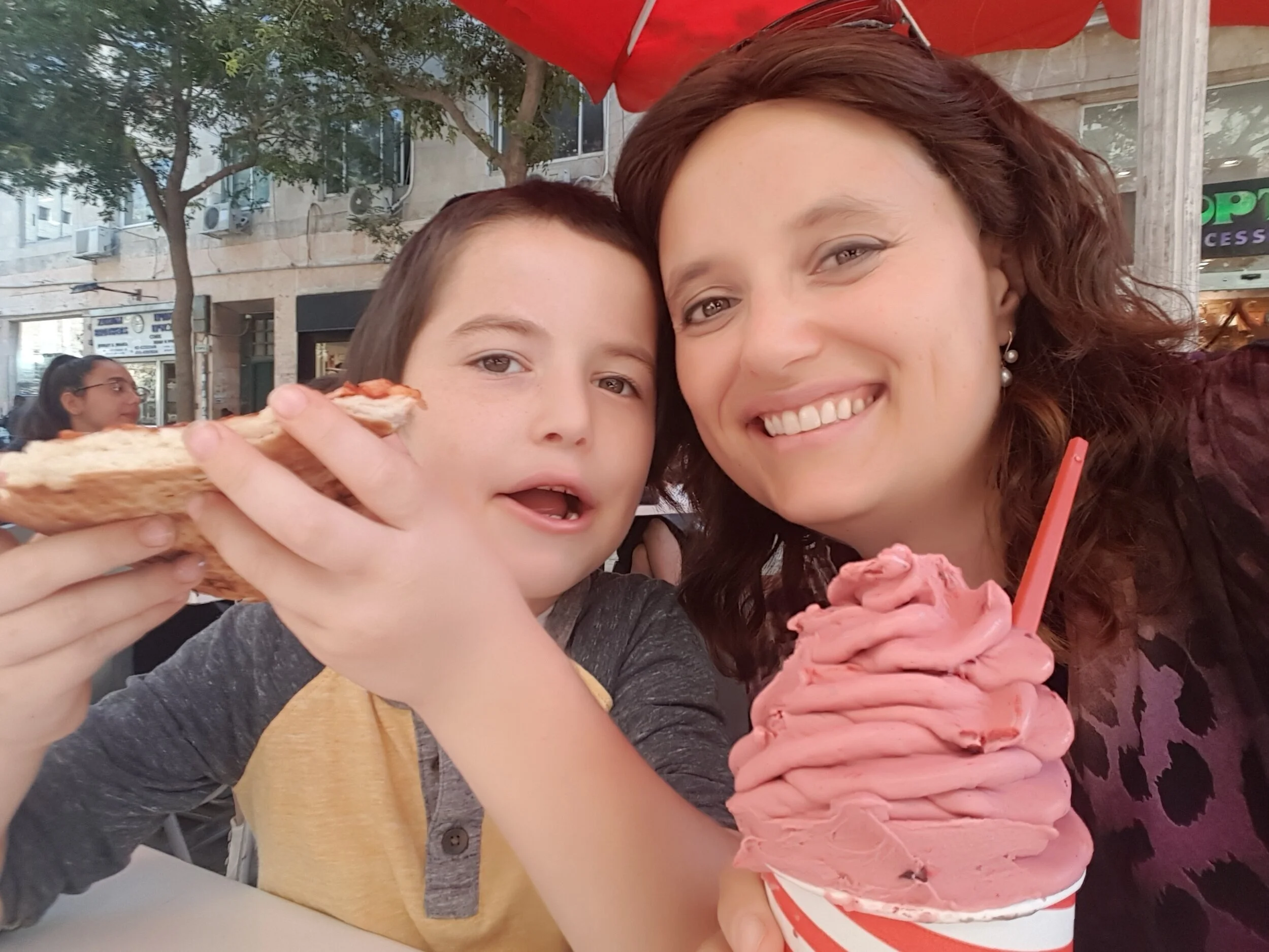How to Create a Safe Haven for Telling the Truth
How to Create a Safe Haven for the Truth in your home.
Building moral values for kids is not always an easy feat – especially when it comes to telling the truth!
But the honest truth is about teaching this value is – you can learn about why kids lie, or what to do when you catch your child in a lie, or even how to detect when your child is lying, but the biggest barrier to kids not wanting to tell the truth is their not feeling safe to do so.
The real work doesn’t begin until you can create a safe haven in your home where your kids will always feel safe to tell the truth.
12 Ways to Create a Safe Environment for Telling the Truth:
1. Be Aware of Your Response to Misbehavior
If your kids know that you’ll explode when you hear about their latest misbehavior – they’ll know it’s way to risky to tell you about it!
When your kids fess up to the antics they’ve been up to, the mess in the kitchen and even the bite marks on their brother’s arm – don’t make them regret having told you – because then you’re even worse off than before they confessed - they might not tell you the truth again for fear of knowing how you’ll react.
Misbehavior is bad.
Especially if it entails bite marks on a brother’s arm! But be smart.
Consider your reactions and make sure they are the best solution for both short and long term parenting goals.
If you need a little help with dealing with misbehavior and consequences then my eBook, Understanding Discipline & Consequences is just thing you’ll need to help get you on track.
☞ If you like this post, you will love: Positive Discipline: How to Get Mind Blowing Results
2. Celebrate Honesty
Your 4-year-old just told the truth – that she was the one to take the chips from the pantry!
Hooray!
Celebrate!!!!
‘Wow – you told the truth!’
Tell your spouse, call Grandma, make an announcement in the house! Give her a special privilege – an extra story at bedtime or a lollipop.
From a very young age – celebrate when kids fess up to doing something that they’re not proud of. It will become part of their subconscious mind that being honest is so so important in their parents eyes.
And that will stay there a lifetime.
3. Listen Actively
Listen with your eyes, shoulders turned to him, phone away. And then listen. Don’t jump in with comments, remarks, solutions.
Just listen. Actively.
And empathize to what your child is going through.
If your child feels like you’re only listening with a half ear – or you don’t really get them and what they’re going through – they’re not likely to open up to you again.
If your kid wants to talk at a time in the day when you have too many things flying – ask him if you can take in a few minutes when you can focus better. And then make the time and space to give him your full attention.
If he says it can’t wait. Then perhaps you should drop the other things on your schedule and make the time right then. It might not be an actual emergency – but it might be an emotional emergency – and he might open up and tell you things that he wouldn’t otherwise if he weren’t feeling so uptight.
Either way – take the time. Give the full attention that your child deserves. With love in your heart and in your eyes.
If your establish your attention (and love) – he will likely come back to share again next time.
4. Mistakes are How We Learn
One of the greatest moments of my parenting career came a few months ago when I opened the fridge to get the ketchup and it slipped right out of my hands and hit the floor, cracking the top right off and splattering ketchup all over the place.
My 6-year-old came running up and said ‘That’s ok Mommy. You just made a mistake!’
And then my 8-year-old chimed in and added ‘And mistakes are how we learn!’
☞ If you like this post, you will love: Why Kids Lie & What You Can Do To Stop It
What a beautiful day that was!
The line that I had repeated over and over again to my kids – for years!!!! Finally became second nature to them.
Hooray!
Celebrate mistakes. Make it normal to make mistakes. Tell stories about people who have made mistakes and learned from them. And above all – KEEP CALM when they make those mistakes.
5. Don’t Set Up a Lie
If you see the sink is full of dishes, don’t ask your daughter if she’s done the dishes yet.
If you know your son hasn’t started on his homework yet, don’t ask him if he’s done it.
Don’t give your kids the opportunity to lie when you know they might take that option if it’s easier for them.
Instead say things like ‘When do you plan on tacking the dishes? Before dinner or after?’ or ‘Let’s get your homework out. Can I help you with anything?’
☞ If you like this post, you will love: How to Detect a Child’s Lie in Just Seconds
6. Never Put Them On the Spot
Putting your child on the spot when they’ve been caught in a lie or blaming them is not the best option. He’ll most probably get all defensive or angry and just try to defend himself.
Instead just dismiss the fib in a small way and focus on the way your child is feeling that they don’t want to tell you the truth.
‘Sounds like a bit of a fib to me. Are you afraid to tell me the truth? Are you afraid I’m going to get mad or punish you?’
Open the lines of communication – wide open – in a non-confrontational and full of understanding and concern kind of way.
7. Promote Do-Overs
Don’t get bent out of shape to the fibs and even whoppers that you’ll hear. Give them a cute word – like tell tale – and then encourage a do-over.
‘Whoops… sounds like a bit of a tell-tale. Let’s see a do-over and give me the real story of what happened.’
This gives them a way out to save face, and a place for everyone to smile and just move on.
And most importantly it gives your child the chance to do-it-over – and get it right.
☞ If you like this post, you will love: How to Talk So Your Kids LOVE to Listen
8. Never Break Their Trust
If your daughter tells you something is top secret – don’t go telling your friends about it. It may not be a big deal to you – but it to her!
Getting caught sharing her private secrets can damage your trustworthiness in her eyes, which may take a long time to repair.
9. Keep Calm and Carry On
Parenting is challenging – I get it! I have 8 kids!!!! And yes, one of the most challenging things about parenting is keep our cool.
But it makes all the difference in the world.
I used to yell consistently at my first 3 kids when they were young. I just didn’t know another way to get them to listen to me.
And now I see the difference – I mean HUGE difference with my kids.
They used to look at me with – might I actually say fright when they did something naughty for fear of my reaction.
And a child who is frightened is not the one who is running to admit the truth to having made a huge mess in the game closet or banging his brother over the head with his book.
Anger management is super difficult but it’s worth every minute you invest to master it. Feel free to join my FREE Anger Management Classes.
☞ If you like this post, you will love: I Hurt My Child in Anger – What Do I Do?
Be the Change
You want to see in your child!
10. Be the Right Example
Before you go pointing the finger at your child – take a long look in the mirror. Remember just like in every other area of life – kids mimic what you do. And building moral values for kids all the more so!
Do you tell your child to lie about his age at the amusement park?
Do you make up stories why you can’t volunteer for school events or why you came late?
There are eyes watching your every move 24 hours/day.
You want to see a change in your child?
☞ If you like this post, you will love: 10 Personal Development Tips for Parents
11. Have an Awesome Relationship
The more connection you have, the more of a positive relationship you have, the more your child relies on you for emotional support. And that means that he’ll also turn to you when he needs to share or get advice.
Constantly be growing your relationship on all levels – at every age and at every stage.
My 6-year-old and I out on ‘spend-the-day-together-date’ just to connect and have fun!
Love Love Love
Show your love unconditionally always. Your kids should know – in their bones – that no mater what they ever might do, you love them no mater what, no mater what, with all your heart!








